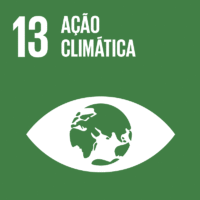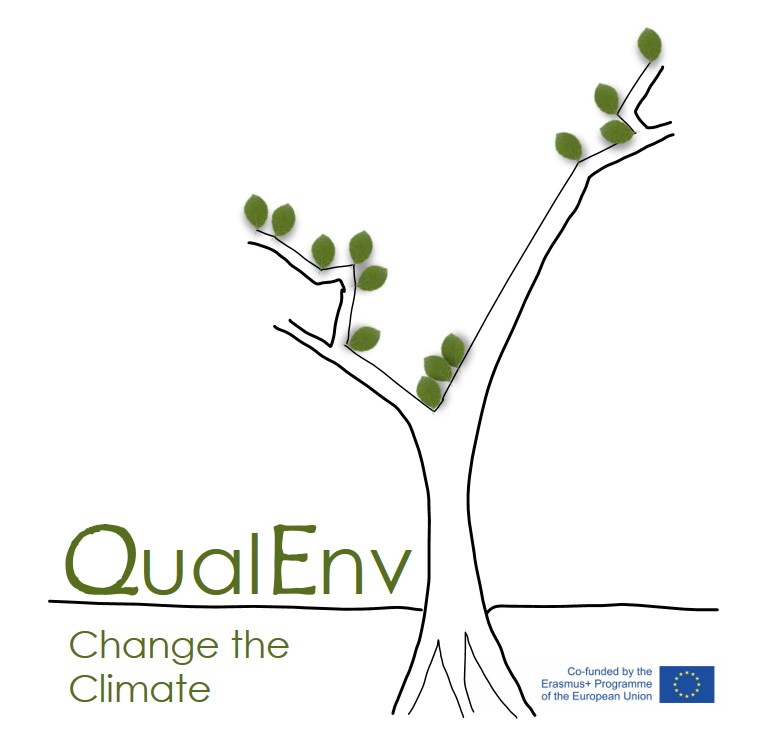Population growth, increased prosperity and rapid urbanization are bringing global demand for natural resources to a point increasingly beyond the Earth’s carrying capacity. Together with climate change, those pressures are causing significant environmental degradation in many parts of the planet. Latin America is particularly vulnerable. The United Nations Sustainable Development Goals (SDGs) constitute urgent calls and drivers for higher education to be part of future generations of engaged citizens aware of their role in creating fair and healthy societies.
The Change the Climate project addresses three main needs: environmental management at all levels of higher education activities, integration of environmental management with sustainability strategies and institutional quality management, and customized strategies for sustainability in education. The project’s main goal is to increase Latin-American University’s contribution to Sustainable Development, through the implementation of environmental systematic practices and quality processes in alignment with the UN SDGs, improving the management and operations of higher education institutions.
The project will deliver tools and guides for environmental impact analysis and SDGs mapping in campus operations and educational activities. An environmental management system will be implemented in each partner university decreasing their environmental impact; sustainability awareness will be assessed thoughout the academic communities; strategies for sustainability in higher education will be developed for curricula improvement; and a common open online course on sustainability will be created in English, Spanish and Portuguese.
The project’s impact will reach stakeholders beyond the project partnership at local, regional and national levels contributing to behavioural change for sustainable futures.
Population growth and increased prosperity, ever expanding economies, rapid urbanization and globalization are bringing global demand for energy, water and food to a point increasingly beyond the Earth’s carrying capacity. Together with climate change, those pressures are causing significant environmental degradation in many parts of the planet. Latin America (LA) is particularly vulnerable:
deforestation of rainforests, climate change-induced loss of land productivity, biodiversity loss, natural resources degradation, water shortages, effects on the fishing and tourism sectors, all have been increasing recently. These trends have direct consequences on the regional, national and local societies and economies, but also very significant effects worldwide because some of these countries are large exporters of food (meat, vegetables and fruit), energy and other material resources.
The LA region is fully aware of the challenges ahead and in many countries regulatory instruments have been put in place to face them. However, sector-specific policies are generally not integrated causing a fragmentation that creates additional pressure.
The Global Climate Agreement signed in 2015 and The UN decision on the Sustainable Development Goals (SDGs) constitute urgent calls and drivers for Higher Education involvement. The UN goals for instance include the emphasis on "By 2030, ensure that all learners acquire the knowledge and skills needed to promote sustainable development, including, among others, through education for sustainable development and sustainable lifestyles.”
According to UNESCO and the United Nations, education has a key role for a sustainable future, challenging Universities to take a leadership role in sustainability issues. As universities educate the next generation of decision-makers and influencers, they can have a greater impact on sustainable development than any other single sector in society. However, their positive impact and contribution are marginal if sustainability-related practices are not framed by a systematic approach, which promotes continuum improvement and assures quality.
Universities' quality assurance systems provide a formal framework to address this challenge, in line with current European and international standards requiring HEI to build a strong commitment to quality assurance and continuous improvement. HEI also have a growing concern to achieve and demonstrate an improved environmental performance by implementing stronger controls over their activities that have negative environmental consequences. This requires a solid integration of the environmental aspects with the institutional quality management systems.
The partner institutions are deeply committed to environmental protection and sustainable development. The universities have put in place initiatives, programs and management tools to deal with quality improvement and sustainability practices both in campus operations and education. There are however common needs related to systematic and integrating procedures delivering a holistic approach to sustainable development in academic activities.
This Erasmus+ Plus Key Action 2 project will promote the cooperation for innovation and the exchange of good practices among 15 partner institutions: ISCTE-IUL (Portugal), Pontifícia Universidade Católica do Rio Grande do Sul (Brazil), Universidad del Norte (Colombia), Universidad de La Sabana (Colombia), Universidad de Costa Rica (Costa Rica), Universidad Nacional de Costa Rica – Heredia (Costa Rica):, Universidad de Lima (Peru), Universidad del Pacífico (Peru), Universidad de Guadalajara, (Mexico), Benemérita Universidad Autónoma de Puebla, (Mexico), Universidade Federal de Santa Catarina (Brazil), Universidade do Sul de Santa Catarina (Brazil), Politecnico di Torino (Italy), Goeteborgs Universitet (Sweden), Sustainability Literacy Test (France).
The project thus addresses the priorities defined by the Erasmus+ Programme for action CapacityBuilding in the Field of Higher Education through the creation and strengthening of quality assurance mechanisms in environmental management, in a way consistent with international standards, such as ISO 14001. Furthermore, there is a valuable transfer of experiences, skills and competences developed by leading European universities in sustainability and quality management. These EU HEI have mature policies and processes, as well as high-value educational and training content that can effectively serve to accelerate progress in the implementation of SDGs in Latin-American universities.
Through the implementation of the project’s activities, partner universities will progressively design, develop and implement quality management tools that will assure well established and long-term modernisation of governance.
- The mapping of environmental impacts;
- The improvement of the environmental impact related to HEI operations and activities;
- The assessment of sustainability-related awareness of the academic community;
- Adaptation of educational programmes to include strategies for sustainability in education;
- The creation of a common transversal open course on sustainability;
- The calculation of a Sustainability index;
- The creation of an open online repository of sustainability-related materials and resources;
- The creation of a Latin-American and European network for sustainable campi and education.
- To install sustainability related holistic quality assurance processes and mechanisms through environmental management systems in alignment with the UN SDGs in the partner universities;
- To improve education for sustainability in each partner university through the development of customized educational strategies and innovative educational resources aligned with the UN SDGs;
-To reduce the environmental impact of the partner institutions in selected relevant areas through improving management and operations;
- To establish a European and Latin-American network for sustainable campi and education, fostering future progress and continuous improvement of the management systems and educational resources and further extending the project results to other higher education institutions.
| Centro de Investigação | Grupo de Investigação | Papel no Projeto | Data de Início | Data de Fim |
|---|---|---|---|---|
| ISTAR-Iscte | Digital Living Spaces | Líder | 2020-01-01 | 2021-12-31 |
| BRU-Iscte | Grupo de Economia | Parceiro | 2020-01-01 | 2021-12-31 |
| BRU-Iscte | Marketing e Gestão | Parceiro | 2020-01-01 | 2022-12-31 |
| BRU-Iscte | Grupo de Economia | Líder | 2022-01-01 | 2023-07-14 |
| Instituição | País | Papel no Projeto | Data de Início | Data de Fim |
|---|---|---|---|---|
| Pontifícia Universidade Católica do Rio Grande do Sul (PUCRS) | Brasil | Coordenador Técnico | 2020-01-01 | 2022-12-31 |
| Universidad del Norte (Universidad del Norte ) | Colômbia | Parceiro | 2020-01-01 | 2022-12-31 |
| Universidad de Costa Rica (UCR) | Costa Rica | Parceiro | 2020-01-01 | 2022-12-31 |
| Universidad Nacional de Costa Rica – Heredia (UNA) | Costa Rica | Parceiro | 2020-01-01 | 2022-12-31 |
| Universidad de Lima (ULima) | Peru | Parceiro | 2020-01-01 | 2022-12-31 |
| Universidad de La Sabana (La Sabana) (UNISABANA) | Colômbia | Parceiro | 2020-01-01 | 2022-12-31 |
| Universidad del Pacífico (UP) | Peru | Parceiro | 2020-01-01 | 2022-12-31 |
| Universidad de Guadalajara (UDG) | México | Parceiro | 2020-01-01 | 2022-12-31 |
| Benemérita Universidad Autónoma de Puebla (BUAP) | México | Parceiro | 2020-01-01 | 2022-12-31 |
| Universidade Federal de Santa Catarina (UFSC) | Brasil | Parceiro | 2020-01-01 | 2022-12-31 |
| Universidade do Sul de Santa Catarina (UNISUL) | Brasil | Parceiro | 2020-01-01 | 2022-12-31 |
| POLITO (POLITO) | Itália | Parceiro | 2020-01-01 | 2022-12-31 |
| Universidade de Gotemburgo (GU) | Suécia | Parceiro | 2020-01-01 | 2022-12-31 |
| Sustainability Literacy Test (SULITEST) | França | Parceiro | 2020-01-01 | 2022-12-31 |
| Nome | Afiliação | Papel no Projeto | Data de Início | Data de Fim |
|---|---|---|---|---|
| Catarina Roseta-Palma | Professora Associada (DE); Investigadora Integrada (BRU-Iscte); | Coordenadora Global | 2022-01-01 | 2023-07-14 |
| Vasco Rato | Professor Associado (DAU); Investigador Integrado (ISTAR-Iscte); | Coordenador Global | 2020-01-15 | 2021-12-31 |
| Ana Margarida Madureira Simaens | Professora Auxiliar (DMOG); Investigadora Associada (BRU-Iscte); | Investigadora | 2020-01-01 | 2022-12-31 |
| Raquel Velada | -- | Investigadora | 2020-01-01 | 2022-12-31 |
| Carla Matias | -- | Investigadora | 2020-01-01 | 2022-12-31 |
| Carla Farelo | -- | Investigadora | 2020-01-01 | 2022-12-31 |
| Catarina Roseta-Palma | Professora Associada (DE); Investigadora Integrada (BRU-Iscte); | Investigadora | 2020-01-15 | 2021-12-31 |
| Código/Referência | DOI do Financiamento | Tipo de Financiamento | Programa de Financiamento | Valor Financiado (Global) | Valor Financiado (Local) | Data de Início | Data de Fim |
|---|---|---|---|---|---|---|---|
| 609863-EPP-1-2019-1-PT-EPPKA2-CBHE-JP | -- | Contrato | European Commission, Education Audiovisual and Culture Executive Agency - Erasmus+ | 943943 | 105106 | 2020-01-15 | 2023-01-14 |
Não foram encontrados registos.
Não foram encontrados registos.
Não foram encontrados registos.
Não foram encontrados registos.
Não foram encontrados registos.
Com o objetivo de aumentar a investigação direcionada para o cumprimento dos Objetivos do Desenvolvimento Sustentável para 2030 das Nações Unidas, é disponibilizada no Ciência_Iscte a possibilidade de associação, quando aplicável, dos projetos científicos aos Objetivos do Desenvolvimento Sustentável. Estes são os Objetivos do Desenvolvimento Sustentável identificados para este projeto. Para uma informação detalhada dos Objetivos do Desenvolvimento Sustentável, clique aqui.

 English
English





